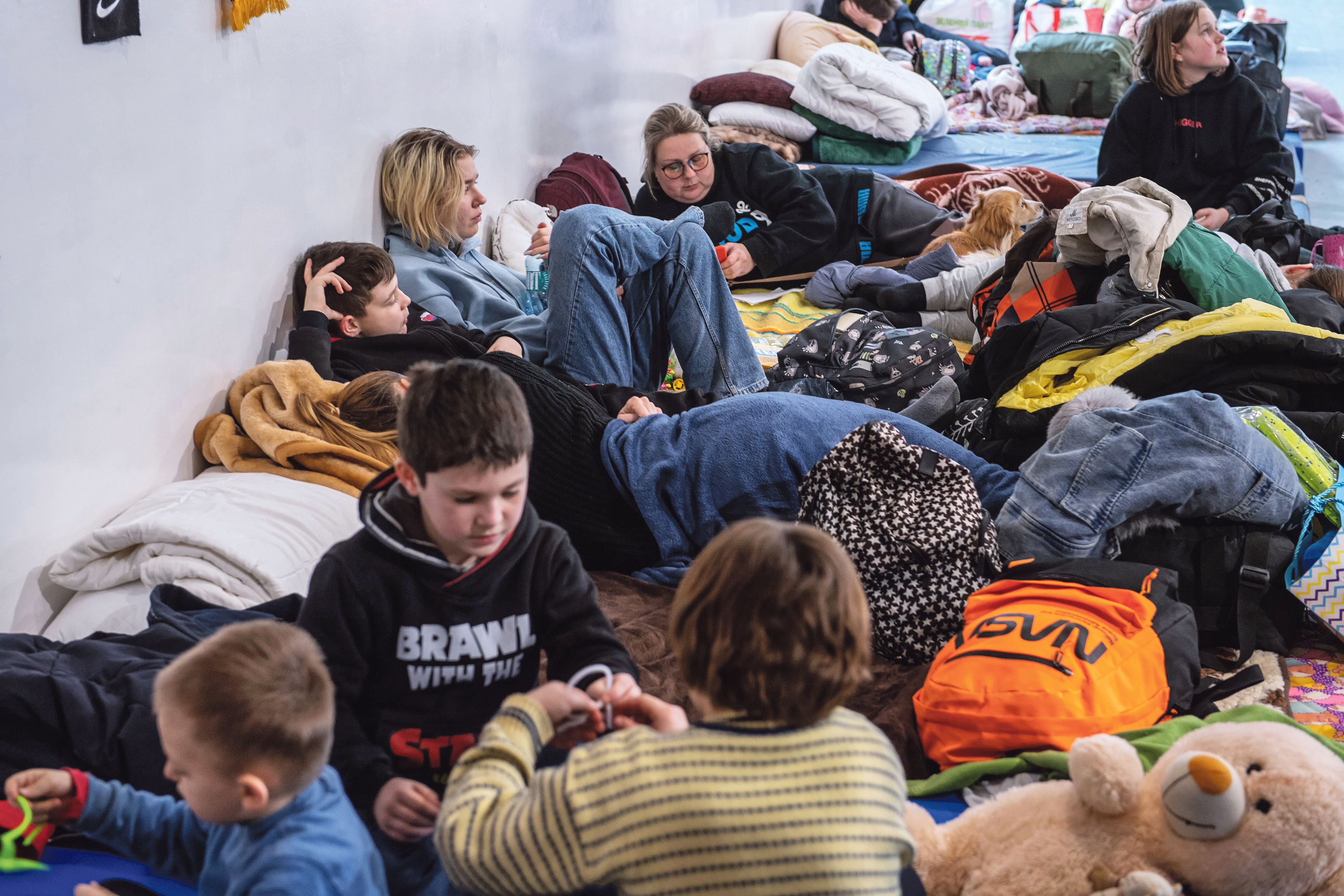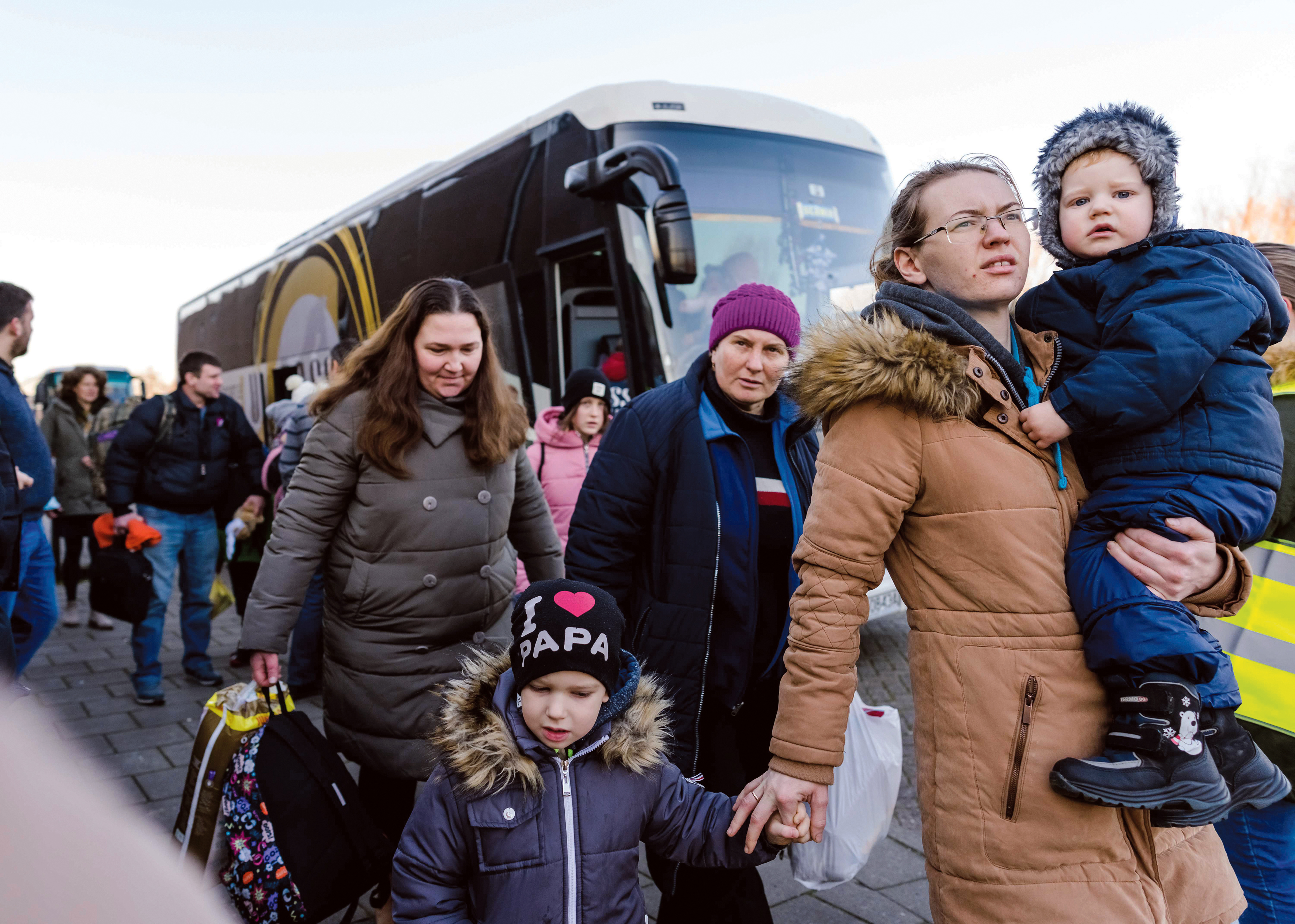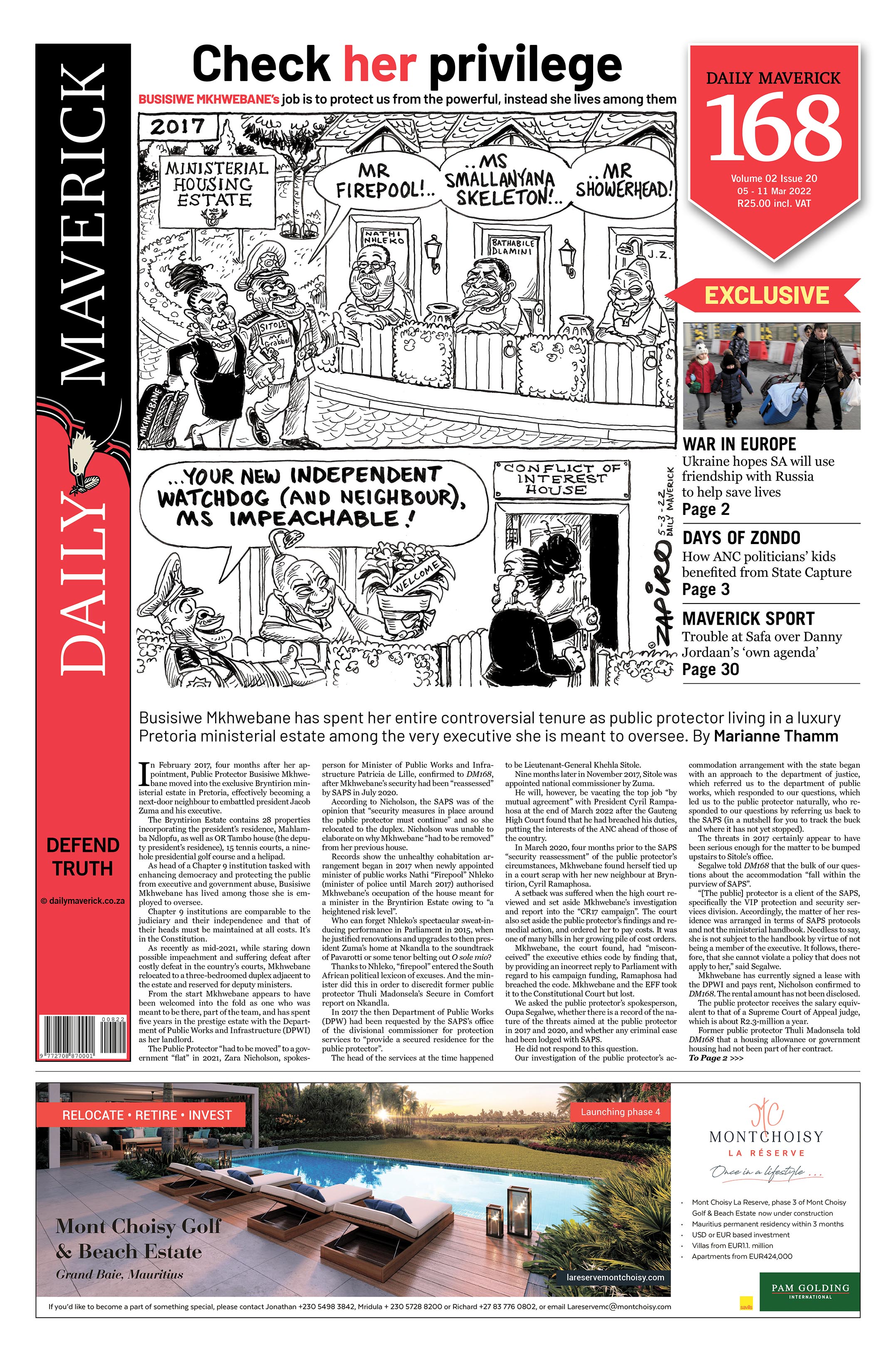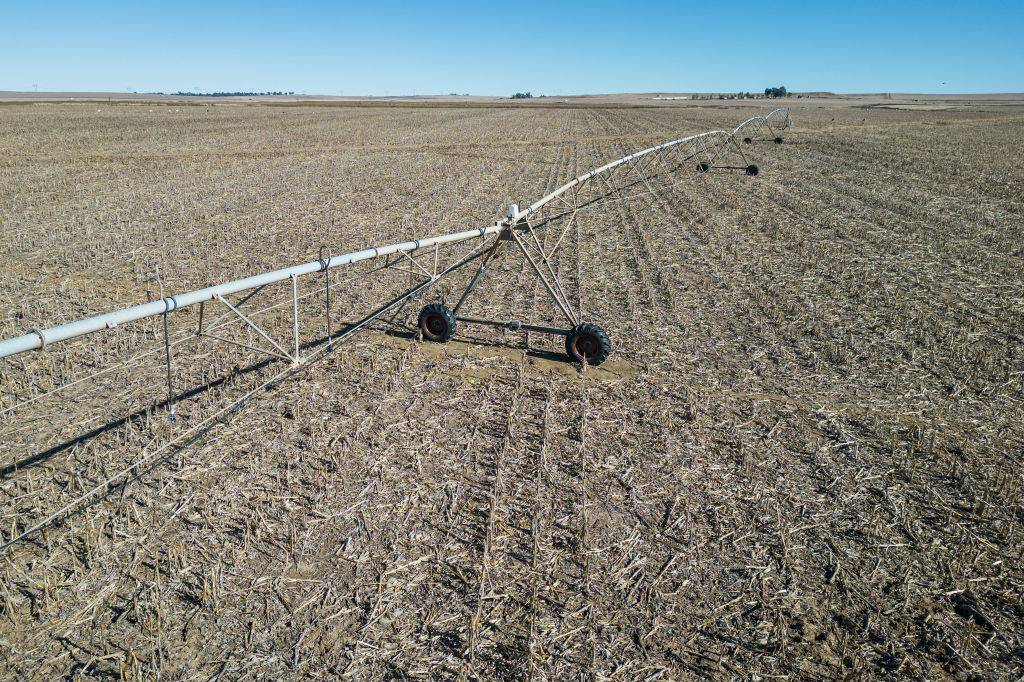South Africa’s abstention from the UN vote condemning Russia’s military aggression in Ukraine has prompted a “dismayed” ambassador Liubov Abravitova to plead for South Africa instead to use its diplomatic leverage with Russia to push for humanitarian corridors.
These would allow civilians to leave safely and supplies to enter.
“The strong voice that South Africa can raise now, not with the UN, but on the bilateral level [with Russia], that can save a lot of lives now,” Ukraine’s ambassador to South Africa told DM168 on Friday, 4 March.
She has not been able to secure any meetings with South African officials on such political matters as yet.
More than a week since Russian tanks first rolled into the territory of its smaller neighbour, more than a million people have fled the former Soviet republic.
Those still in the country “are now without food, electricity, water, stuck to their places of location”, Abravitova said.
She was also concerned about foreigners, including about 16,000 African students, who are in Ukraine, and the country’s ability to get them out.
“We have to really push through your government [South Africa] and to Russians to help open secure corridors to let people out,” said Abravitova.
Ukraine has given preference to women and children wanting to flee the country, whereas men aged 18 to 60 are at the back of the queue.
Abravitova, during a joint media event with the US chargé d’affaires to South Africa Tod Haskell, at his residence in Pretoria on Thursday, expressed dismay and puzzlement at South Africa’s decision to abstain from the vote on a resolution on Russian aggression in the UN General Assembly on Wednesday.
“We consider this approach taken by South Africa as not being useful for the resolution of conflict. We are aware of the reasons that South Africa has given for their stance, but even in that we still find it very alarming,” she said.
On Friday, she pointed to the Russian shelling attack on the Zaporizhzhia nuclear plant — the largest in Europe — as an example of the “consequences” of not voting for the UN resolution.
Although it cannot be enforced in any way, supporters of the resolution, such as the US, believe that the 141 votes in favour showed widespread condemnation for Russia’s actions.

Assistant secretary in the bureau of African affairs Molly Phee, during a telephonic press conference this week, said “African voices matter” in the global context because “it is critical at this moment in time that the entire international community demonstrates unity and speaks with one voice against this aggression and in support of principles” such as sovereignty, territorial integrity, peaceful dispute resolution and protection of civilians.
Twenty-eight African member states voted in favour of the resolution, and 25 either actively abstained or did not vote at all. Only Eritrea voted against.
Phee quoted Secretary of State Antony Blinken as noting that, “in some cases, an abstention actually speaks loudly itself, as opposed to a no vote”.
South Africa’s ambassador to the UN, Mathu Joyini, in an explanation of South Africa’s vote, said, despite the country’s concerns about the conflict and its socioeconomic implications, the resolution in question “does not create an environment conducive for diplomacy, dialogue and mediation”.
She said the text as it stood “could drive a deeper wedge between the parties rather than contributing to a resolution of the conflict”.
South Africa wanted the text to include a positive word about the commencement of negotiations between the parties and for more prominence to be given to the role of the UN Security Council as well as the good offices of the UN Secretary-General.
There were efforts to negotiate the text beforehand, diplomats said, but it is unclear to what an extent South Africa was involved.
Joyini said South Africa would have “preferred an open and transparent process to negotiate the resolution”, which would have allowed “all of us, as equal members of the Assembly, to present our views and ideally reach a level of understanding before the text was tabled”.

Meanwhile, Ukraine’s government has been calling on Nato to declare Ukraine a no-fly zone.
However, this would oblige Nato member countries to go on the offensive and shoot down Russian planes when they transgress the zone.
Blinken on Friday, ahead of a meeting of Nato foreign ministers at its headquarters in Brussels, said the alliance was “defensive” and that they “seek no conflict”, Reuters reported.
Ukraine’s possible membership of Nato is one of the issues that provoked Russia’s “military exercises”, an issue South Africa believes should have been acknowledged in the UN resolution.
In 2011, the declaration of a no-fly zone over Libya ended with the assassination of its leader, Muammar Gaddafi. South Africa was a member of the UN Security Council at the time and voted in favour of the no-fly zone, but afterwards slammed Nato about the outcome.
With no immediate end to the conflict in sight, Abravitova said a number of Ukrainians holidaying or living and working abroad have been stranded.
“They can’t go back any more,” she said. “There must be a process of negotiation with each country on how we can assist.”
She says she did request help from South Africa through diplomatic channels. This included “the possibility of receiving a number of people from Ukraine” who had fled the country.
Some of these would include the families and children of those who are abroad and who might not have passports or documents.
“We met with Dirco [the Department of International Relations and Cooperation] on the level of the desk to discuss the technical issues,” she said, “and also a special visa regime for those who have to join their relatives in South Africa, and the Ukrainians stuck in South Africa.”
But the biggest part of her work so far has been to coordinate safe passage out for the African students in Ukraine.
Abravitova also said she requested a meeting with Defence Minister Thandi Modise at the start of the attacks last week, to ask for help with evacuations and to secure corridors, but she hasn’t received a reply.
Modise’s office could not immediately provide comment, but she told a press conference last week that the defence force had received no requests to help with evacuation.
Such requests are, however, usually channelled through Dirco.
Government officials did not reply to requests for comment at the time of going to press. Modise reportedly attended a Russian embassy function last Thursday, soon after the attacks on Ukraine started. DM168
This story first appeared in our weekly Daily Maverick 168 newspaper which is available for R25 at Pick n Pay, Woolworths, Exclusive Books and airport bookstores. For your nearest stockist, please click here.

Related Articles
![]()





















Discussion about this post